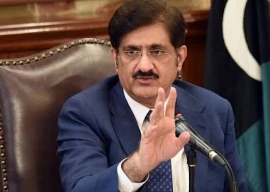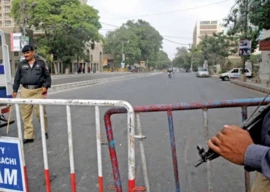
The Supreme Court and the government are mired in deep controversies, some of which have aroused partisan interpretations among professionals and analysts. The current government is faced with a truly independent apex court, as never seen in the past when governments used tendentious procedures to subjugate the judges and make them overlook backslidings from the legal norm by the rulers of the country. For the first time, the country is looking at the operation of a free judiciary determined to keep the government on the straight and narrow path of ‘due process’.
The latest crisis has arisen over the transfer and reinstatement of Hussain Asghar as director of the Federal Investigation Agency to inquire into the blatant Hajj corruption case, which the government wishes to duck out of without those responsible for causing millions of rupees of loss to the state exchequer getting punished. The honourable court had ordered the secretary establishment under pain of punitive action to ignore government orders and reinstate Asghar, only to be relieved of his post and sidelined as officer on special duty. For anyone looking in from outside the country, this moment must appear like ‘banana republic’ all over again. The sidelined secretary had been in place only for 20 days after an earlier incumbent was removed for similar reasons.
Two not very honourable operative styles are in a state of clash: The politician in power wants to be unshackled in his pursuit of power and advantage; the elements arrayed against the government want to get rid of it by hook or by crook. And the judiciary is caught in the middle trying to tread the constitutional path against the current of past jurisprudence. As the Supreme Court versus the PPP government confrontation unfolded, the need to put an end to the practice of getting rid of governments before their tenures has intervened. If the government collapses as a result of obeying the Court — as in the Swiss Court case — it will be another nightmarish rerun of what has been happening in the past. Since piety never prevailed after the premature ouster of each government, people have lost faith in the ‘midstream’ change.
The normal way of getting rid of a government is to make it lose its majority in parliament. The Supreme Court realises that the PPP government has successfully warded off all challenges to its parliamentary majority, and those who want to oust it have instead helplessly gone along in the legislature to help it pass constitutional amendments that Pakistan has badly needed, only to see governments with a heavy mandate in the past unable to manage them. Unfortunately, the general dysfunction of the incumbents has increasingly alienated the common man from them and there is a growing opposition chorus demanding that the PPP pack its bags and exit. Appeal from an ex-army chief — who was himself not famous for respecting the judiciary — to the current army chief to come to the help of the judiciary cannot be acceptable.
What is needed is a Supreme Court that remains steadfast in its pursuit of due process, creating checks and balances in the state institutions, and a civil society ensuring that future governments don’t behave the way the current government is behaving. Any tilting exaggeratedly in favour of one institution or the other will not be good. Old state practices don’t go away overnight and the great achievement of the current interregnum is that we have a judiciary with a strong backbone.
Published in The Express Tribune, July 28th, 2011.
COMMENTS (2)
Comments are moderated and generally will be posted if they are on-topic and not abusive.
For more information, please see our Comments FAQ







1736508423-0/Express-Tribune---News-Desk-(9)1736508423-0-270x192.webp)










The fact is that, Amrab Khan as a political leader looks better than all talking to day for betterment of the nation, it can not be disregarded that both the parties has been in power for remarkable period but did nothing for the nation so there is no need to depend on them once again.